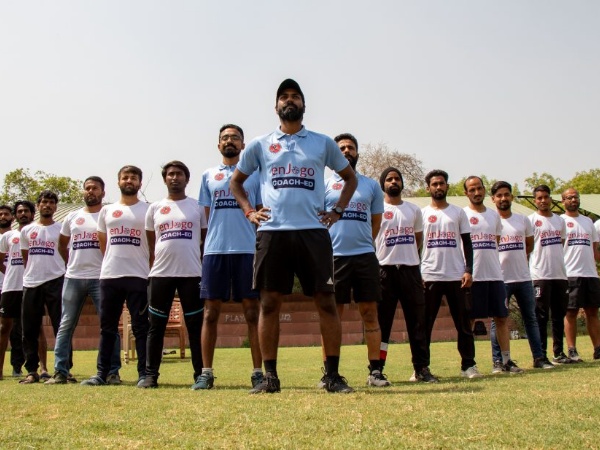views : 790
4 Min Read
India must urgently get sports coach education on track to compete with the best
So, what do you believe is the single biggest piece that can make the jigsaw of Indian sport look more complete at the global level? Is it the lack of talent? Is it inadequate infrastructure? Or is it the absence of good coaching structure at all levels, especially the grassroots, across the country? My vote goes for the poor coaching standards at the entry stage hurts India a lot.
Since India aspires – and rightly so – to rise to the top 20 and eventually the top 10 in the Olympic games medal table, it must urgently pay more attention to providing quality sports coach education to ensure that the next generation of athletes which will compete in the 2036 Olympic Games is trained right.
If the right techniques and thought processes are not imbibed in the early years of sport , it leads to situations where overseas coaches spend time in national camps in making error corrections. And many agree that the need to use right training methods and instill the correct fundamentals of technique and temperament in the young athlete is the crying need of the hour.
Surprisingly, private educational institutions offer courses in sports management and sports marketing while glossing over sports coach education. That has left the Netaji Subhas National Institute of Sports, Patiala, as the only sports coach educational institution. SAI Centres in Bengaluru, Thiruvananthapuram and Kolkata until the onset of the National Sports University.
The Sports Authority of India Annual Report 2023-24 indicates that in six decades since NIS was established in 1961 and its sub-centres in Bengaluru, Kolkata and Thiruvananthapuram, it has produced 23,867 diploma holders. There can be no argument that this is too small a number for a country of India’s size and aspirations.
In 2022-23 academic year, 743 persons became holders of Diploma in Sports Coaching across the country. These comprised 331 trainees in 11 disciplines in NIS Patiala, 255 trainees in 11 disciplines in SAI NS South Centre in Bengaluru, 144 trainees in SAI NS Eastern Centre in Kolkata and 13 trainees in Rowing, Canoeing & Kayaking in Thiruvananthapuram.
Besides a total of 258 candidates in nine sports disciplines have passed the Punjabi University’s Master of Science (Sports Coaching) programme offered by NIS since its introduction in 1979. It has an intake of around 20 students each year, having 17 in three disciplines in 2022-24 and 22 in 2023-25.
In the National Sports University in Imphal, 14 scholars have registered for the four-year Bachelor of Science (Sports Coaching) and 17 for the two-year Master of Science (Sports Coaching) programmes. You will agree that these kind of numbers are grossly inadequate to coach such a large pool of youth in the country.
The introduction of a six-week certificate course in sports coaching saw 3681 candidates take up the course in May-June 2023 and 3719 candidates joined the course in December 2023-January 2024. This may only be a quick-fix solution to meet the demand for sports coaches in the ecosystem.
Of course, realising that the NIS system has not helped in raising the standard of sport in the country, some National Sports Federations have recently brought in coaching programmes designed by the respective International Federations. But while this is a start, even these are proving to be few and far between.
There is also a drive to engage former internationals in the highest echelons of coaching in India even before they undergo coach education. It is not as if all former international athletes will have the aptitude for coaching (and it is true that many eye roles in sports administration). But many lesser athletes may turn out to be good coaches if armed with the right skills.
If quality of talent attracted to the coach education courses in the country is assessed dispassionately, one is most likely to conclude that India can do better. A deeper study will likely reveal that the jobs and incentives available for sports coaches are not attractive enough to draw more aspirants and with greater potential to impact sound coaching at the grassroots level.
If India can address this entry-level issue, it may find solutions to the problems staring it in its face despite the demographic dividend that it enjoys. It is not as if there are no solutions for such an issue. It is only a question of the thought leaders in Indian sport coming together to find smart methods to attract and reward coaches of quality at the grassroots level.
One of the things that Ministry of Youth Affairs and Sports can seriously consider subsidising salaries of qualified sports coaches employed by schools. In fact, the Central and State Governments must ensure that are at least 5 NIS qualified coaches in each school. That could revive the sports ecosystem within schools and create a wider talent base.
With due respect to the physical education teachers who introduce sport to children in schools, they may not be the best equipped to teach the correct techniques across disciplines. It is therefore critical that schools are encouraged and supported to engage a number of qualified sports coaches and become a more viable first rung in the ladder of India’s sports success in the foreseeable future.
This does not require much tinkering but calls for only a shift of focus from infrastructure creation to producing more coaches of better quality. The country must develop a rich network of coaches who are invested in India’s journey to become a better and more competitive sporting nation and not just content with being part of, if not running, academies.
